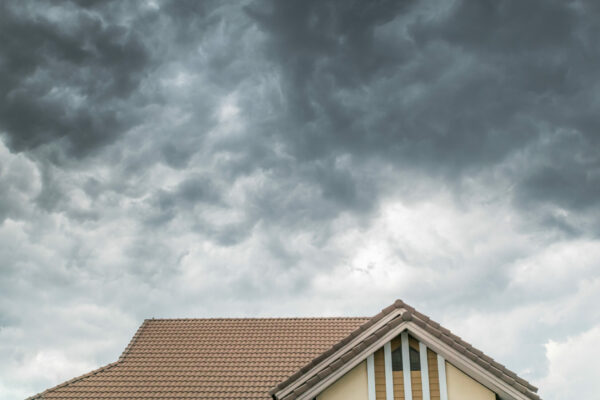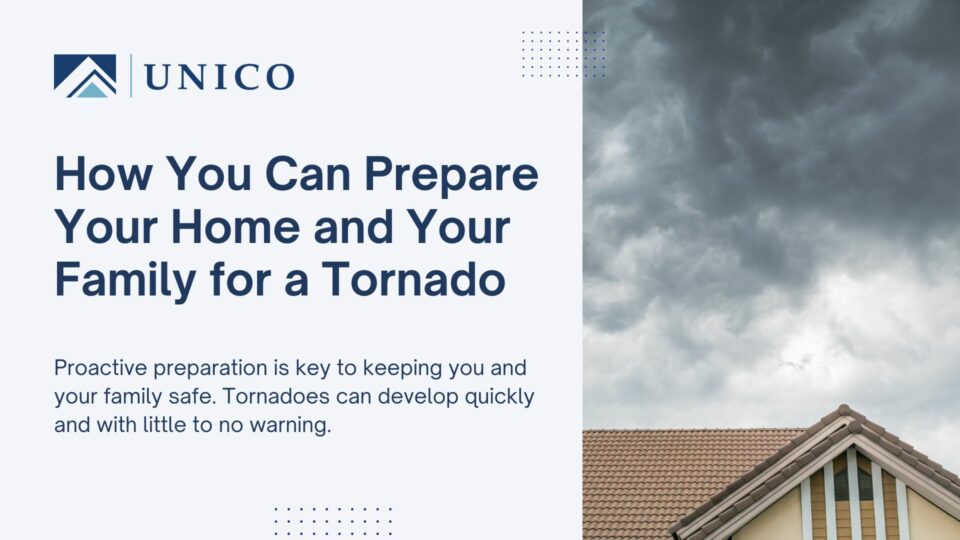Tornadoes can devastate homes, neighborhoods and entire communities in a matter of moments. Peak tornado season is between March and May; however, tornadoes can develop at any time of the year.
To keep you and your family safe, be prepared for before, during and after a tornado strikes.

What to do During a Tornado
If you notice any of the warning signs or an approaching storm, be prepared to seek shelter immediately.
- Go to your identified shelter as soon as possible.
- If you are caught elsewhere during a tornado, see below:
- Small buildings, schools, hospitals, shopping centers or high-rise buildings
- Proceed to the pre-determined shelter area.
- Take cover under tables or other strong furniture to protect yourself from falling debris. Blankets or other heavy clothing can also be used to soften overhead impact.
- Trailers or mobile homes
- Seek alternative shelter immediately. Look for the nearest sturdy structure or storm shelter.
- If no shelters are nearby, lie flat on the ground and cover your head with your hands.
- Outside with no shelter nearby
- Do not get on an overpass or bridge.
- If you are struck with flying debris while driving, pull over and park.
- Stay in your vehicle with your seat belt on. Lower your head below the windows and cover the back of your head with your hands, a blanket, coat or any available cushion.
- If an area nearby is noticeably lower than the roadway, leave your car and lie down in that area. Cover your head with your hands.
- Small buildings, schools, hospitals, shopping centers or high-rise buildings
- Wherever your shelter is, crouch down with your head covered by your hands or protective items.
- Do not leave your shelter until local authorities say it is safe to do so.
What to do After a Tornado
Stay put until emergency personnel arrive or public officials say it is safe to leave your shelter. Even though the tornado is over, injuries may occur from its destruction.
- Stay away from downed power lines or standing water near fallen wires. They could still be electrified.
- Use your nose. Gas lines can also be damaged in a storm. If you smell a gas leak, report it to local authorities.
- Watch your step for nails, broken glass or other sharp debris.
- Use extreme caution when entering a structure that has visible damage and avoid if at all possible until a inspected by a professional.
- Do not enter heavily damaged structures.
- Do not attempt to move seriously injured people unless they are in immediate danger of further injuries. Seek medical assistance as soon as possible.
When it’s safe to do so, inspect your home for damages and file a claim with your Advisor.
This flyer is for informational purposes only and is not intended as professional advice. © 2008, 2013, 2016, 2021 Zywave, Inc. All rights reserved. Source: FEMA.GOV




